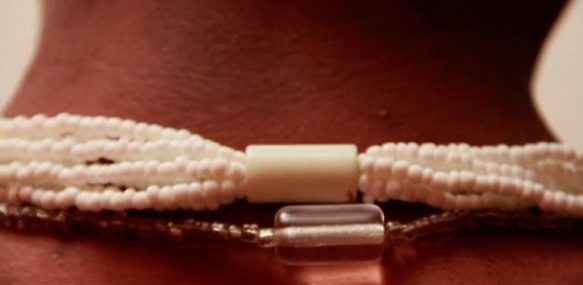Is it possible to conceive a society in which race is not a dominant factor?
Is it possible to view a society in which race is not a dominant factor? What challenges do we face to reach this vision and how would it be?
To reflect on and discuss the non-racial and its unfolding in the areas of human sciences, culture and art, Goethe-Institut, in partnership with Associação Cultural Videobrasil and Sesc São Paulo organized workshop “Arquivos sobre o não-racialismo” (Archives of the Non-Racial) on January 23, 24 and 25, bringing together artists, curators and intellectuals from Brazil, South Africa and the United States, in the areas of philosophy, anthropology, political science and history. Among them Lilia Schwarcz, historian and anthropologist; Juliana Bevilacqua, researcher at the Afro Brazil Museum Association; Ayrson Heráclito, artist and researcher from the Federal University of the Recôncavo Baiano; Eustáquio Neves, a photographer from Minas Gerais; and moviemaker Joel Zito Araújo.
The meeting is part of the “Summer Conversations” program, an event that brings together artists and researchers, in the light of their local perspectives, to reflect the contemporary condition of race and on how our history/files may provide instruments to move us beyond the existing global racial condition. The debates work as a preview to the Johannesburg Workshop in Theory and Criticism, a South African think tank that discusses global problems considering the position of the countries of the South, promoted in partnership with the University of Witwatersrand (South Africa), Johns Hopkins University (USA) and the Humanities Research Institute of the University of California. The project is aimed at re-territorialization of global intellectual production from the South, covering themes and international problems.
The first two days of the event (23 and 24 of January) are closed for group discussions, at Goethe Institut. On 25 January, at 4:00 pm, the anniversary of the city of São Paulo, there will be a Panel Open to the Public at the Galpão at Sesc Pompeia, one of the spaces in which Festival Sesc_Videobrasil is taking place. At the event, the main topics discussed in the previous days will be presented and debated. At the meeting, works of art related to the theme of Non-Racialism and on the topics presented by the participants of the Summer Conversations will be presented.
On the question of race
Since the XV century, race has been a central element in the construction of the modern world, differentiating slave owners and slaves, exploiters and those exploited, owners and non-owners, those qualified and those (supposedly) non-qualified. Historic fights against racism have, since then, partly managed to universalize some of the most important pillars of modernity, like liberty, democracy and equality.
The expression “non-racial” arises in the XIX century, with several intellectual, political and ethical interpretations, among them the idea of a common, shared, human nature and the idea that there is no race other than the human. After the civil rights and anti-apartheid movements of the XX century, “nonracial” became mainly the eradication of differences and social divisions based on race and coverage of human rights. Nowadays, non-racial has evolved to a vision of emancipation of the individual from any racial determination.
Undertaking: Goethe-Institut
Partnership: Associação Cultural Videobrasil, Sesc São Paulo, Johannesburg Workshop in Theory and Criticism and Wits Institute for Social and Economic Research – University of Witwatersrand (South Africa) and Humanities Research Institute - University of California (USA).
Service:
Workshop “Arquivos sobre o não-racialismo” (Archives of the Non-Racial)
January 23 and 24, 2014
Goethe-Institut – Rua Lisboa, 974 – Pinheiros
For guests
Panel open to the public “Arquivos sobre o Não-Racialismo” Archives of the Non-Racial)
Screening of videos in the Videobrasil collection
January 25 | 04:00 pm
Sesc Pompeia | Rua Clélia, 93
Admittance is Free | Simultaneous Translation
PARTICIPANTS
Ashraf Jamal – Researcher and professor, Cape Peninsula University of Technology
Ayrson Heráclito – Artist and researcher, Federal University of the Recôncavo da Bahia, Brazil
Danai Mupotsa – Researcher, University of Witwatersrand, South Africa
David Goldberg – Director of the Humanities Research Institute, University of California, USA
Eustáquio Neves – Photographer and videoartist, Brazil
Joel Zito Araújo – Moviemaker and researcher, doctor in Science of Communications from ECA/USP, Brazil
Juliana Bevilacqua – Doctor in Social History, FFLCH/USP, researcher at the Afro Brazil Museum Association, Brazil
Kelly Gillespie – Anthropologist, University of Witwatersrand, South Africa
Lilia Schwarcz – Anthropologist, curator and researcher, University of São Paulo, Brazil
Marina de Souza e Mello – Historian at the University of São Paulo, Brazil
Maria Helena Pereira Toledo Machado – Historian at the University of São Paulo, Brazil
Michael Hanchard – Political scientist, Johns Hopkins University, USA
Nadia Fadil – Assistant professor, Department of Anthropology, University of California
Roberta Estrela D’Alva - Actress, playwright and director, member and founder of Bartolomeu Nucleus for Testimonials and of group Frente 3 de Fevereiro
Sabrina Moura – Curator, historian and researcher, Associação Cultural Videobrasil, Brazil
Sylvia Nam – Professor at the Department of Anthropology, University of California, USA
Teresa Caldeira – Anthropologist, University of California, USA
Vorris Nunley – Professor, Department of Anthropology, University of California, USA
Zen Marie – Artist, University of Witwatersrand, South Africa
Zinho Trindade - poet, actor and MC Free Style, member of band O Legado de Solano, Brazil
